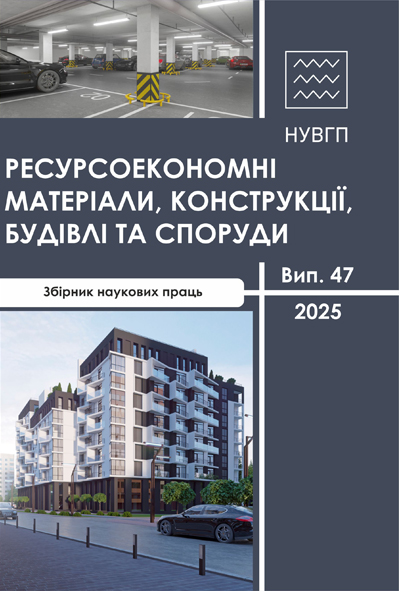INNOVATIVE STRATEGIES FOR MANAGING CONSTRUCTION WASTE IN THE POST-WAR PERIOD
DOI:
https://doi.org/10.31713/budres.v0i47.14Abstract
The article analyzes the multifaceted problem of managing construction waste in the context of eliminating the consequences of armed aggression in Ukraine. The armed conflict has resulted in the widespread destruction of real estate and critical infrastructure, thereby triggering a potential large-scale environmental crisis. In light of these developments, the study investigates the urgent need to reassess and modernize traditional waste management approaches by incorporating the principles of a circular economy at the state level. The scientific inquiry delves into both technological innovations and organizational strategies that can facilitate the implementation of efficient recycling systems. In doing so, it aims to optimize the planning processes within the construction market and to maximize the utilization of recycled materials during the restoration of infrastructure.
Furthermore, the research examines in detail various methods for effective sorting, precise accounting, and systematic reduction of waste volumes that require safe disposal. It highlights how these methods can be integrated into existing waste management frameworks to mitigate the negative environmental impact. The analysis is supported by comparative studies of different recycling technologies and case studies from similar post-conflict scenarios in other regions, thus providing a comprehensive overview of potential solutions. The findings not only underscore the critical role of innovative waste management in preventing environmental degradation but also serve as a scientific basis for developing actionable recommendations. These recommendations aim to improve the efficiency and sustainability of construction waste management systems during the post-war reconstruction period, which is of paramount importance for ensuring the resilience and advancement of modern civil engineering practices.

